A Complete Guide for Supply Chain Automation How Automation in Supply Chain Lowers Costs and Increases Margins
The smart merchant's guide to supply chain automation that fuels growth.
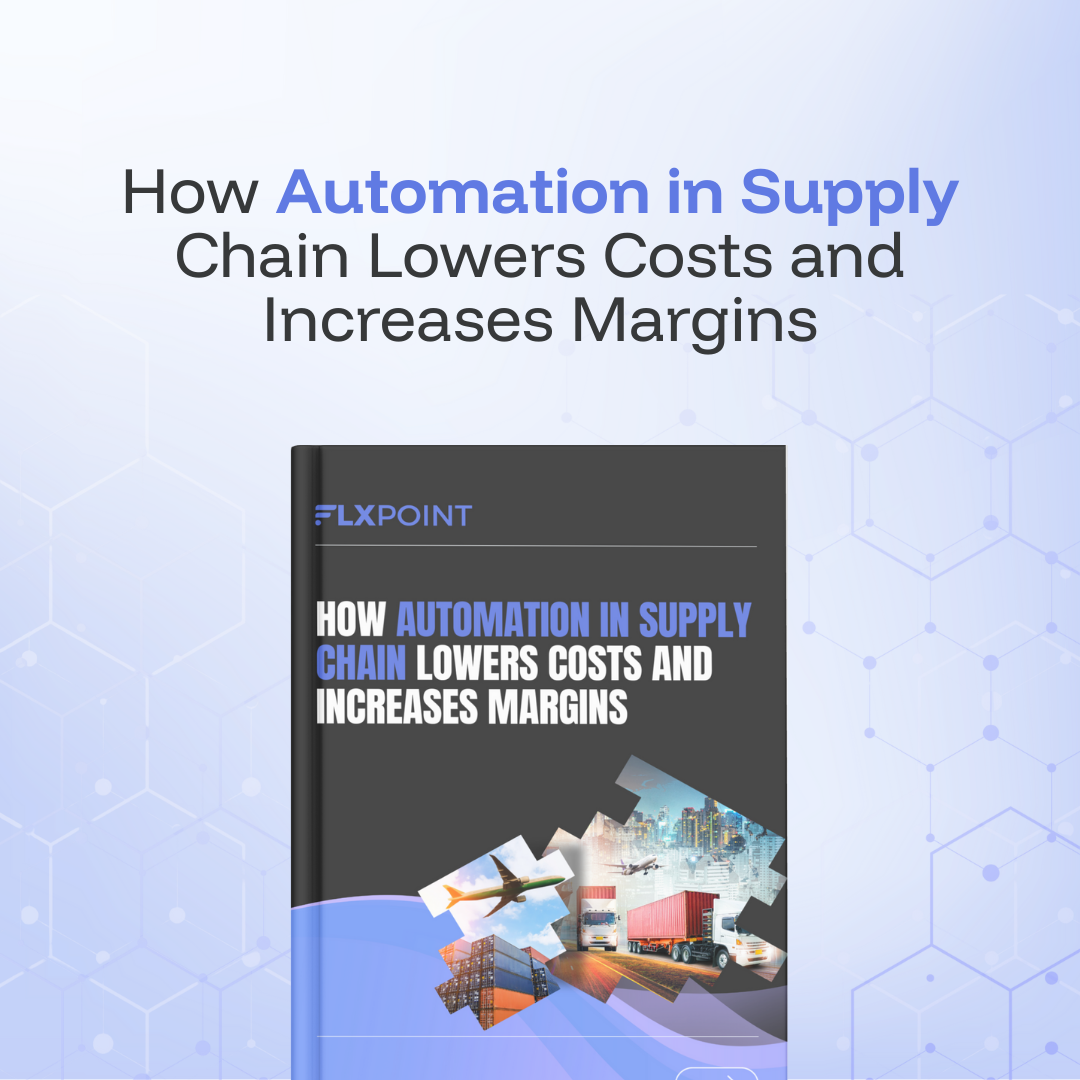
Chapter 1: The Modern Retail Supply Chain—Challenges and Opportunities
Modern supply chains face compliance risks, fragmented systems, and rising customer expectations. Automation addresses inefficiencies, creating scalable, resilient networks.
Chapter 2: The Automation Advantage—Cost Savings Breakdown
Automation reduces labor costs, prevents errors, accelerates cycles, and strengthens ROI. Compared to manual workflows, savings are measurable and margin-enhancing.
Chapter 3: Streamlining Purchasing & Vendor Operations
Automated procurement accelerates POs, improves compliance, and enables dynamic vendor management. Strong supplier alignment ensures profitability and scalability.
Chapter 4: Inventory Visibility and Control at Scale
Real-time inventory logic supports multi-channel accuracy, demand forecasting, and replenishment. Automation reduces overselling risks and strengthens operational reliability.
Chapter 5: Error Reduction, Compliance, and Record-Keeping Automation
Automated audit trails, exception handling, and documentation safeguard compliance, reduce risk, and improve accountability across the supply chain.
Chapter 6: Margin Optimization—Dynamic Pricing and Cost-Driven Decision Making
Automated pricing adapts to costs, demand, and competition. Smart allocation and tracking lower expenses while strengthening customer satisfaction.
Chapter 7: Real-Time Analytics and Continuous Improvement
Analytics provide actionable insights through KPIs, dashboards, and continuous improvement cycles. Real-time visibility drives data-backed optimization.
Chapter 8: Implementation Best Practices and Forward Strategy
Successful automation adoption requires structured planning, cultural alignment, and adaptive strategy. Emerging trends like AI and low-code shape future-ready supply chains.
Guide Chapters
- Chapter 1: The Modern Retail Supply Chain—Challenges and Opportunities
- Chapter 2: The Automation Advantage—Cost Savings Breakdown
- Chapter 3: Streamlining Purchasing & Vendor Operations
- Chapter 4: Inventory Visibility and Control at Scale
- Chapter 5: Error Reduction, Compliance, and Record-Keeping Automation
- Chapter 6: Margin Optimization—Dynamic Pricing and Cost-Driven Decision Making
- Chapter 7: Real-Time Analytics and Continuous Improvement
- Chapter 8: Implementation Best Practices and Forward Strategy
All Chapters in This Guide
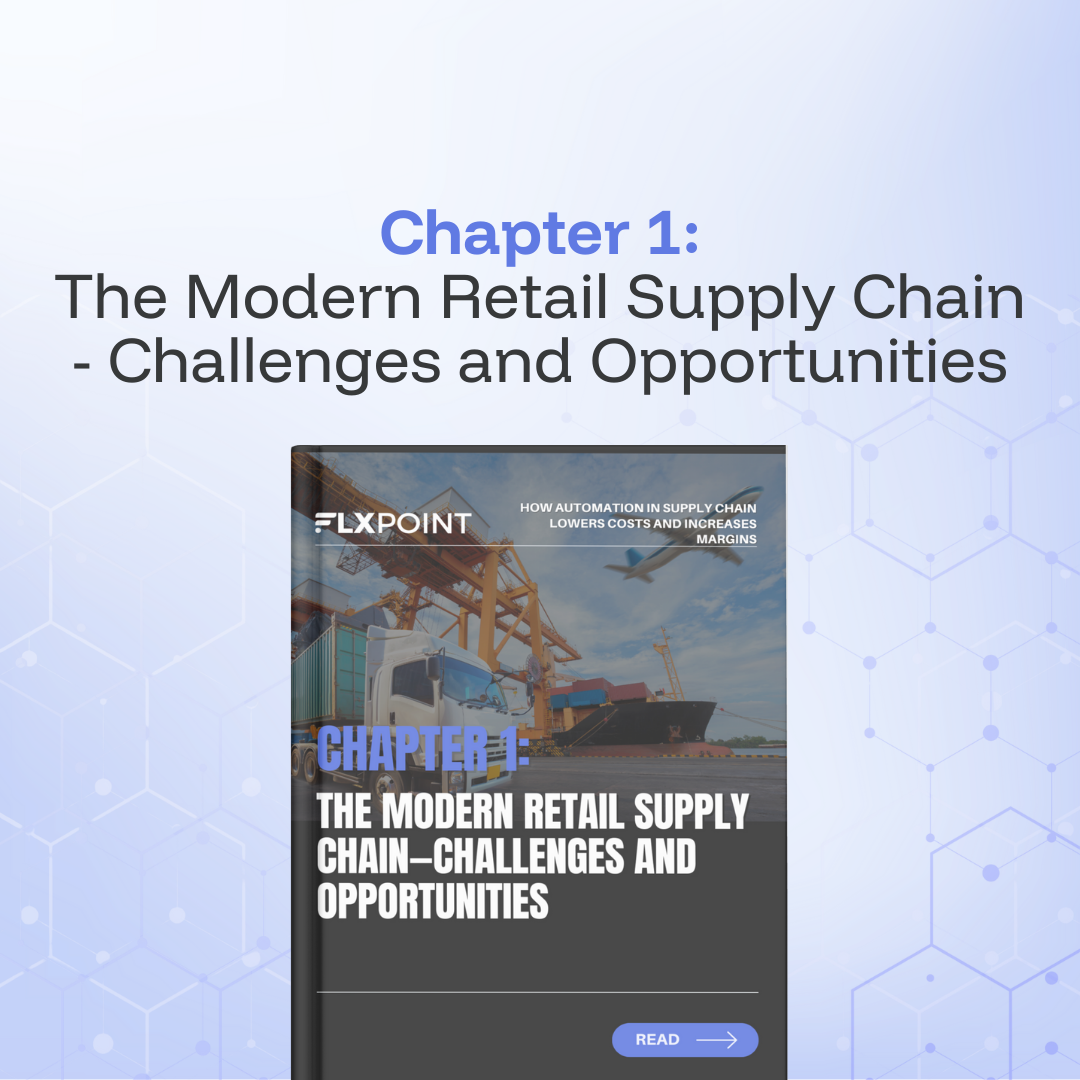
Modern supply chains face compliance risks, fragmented systems, and rising customer expectations. Automation addresses inefficiencies, creating scalable, resilient networks.
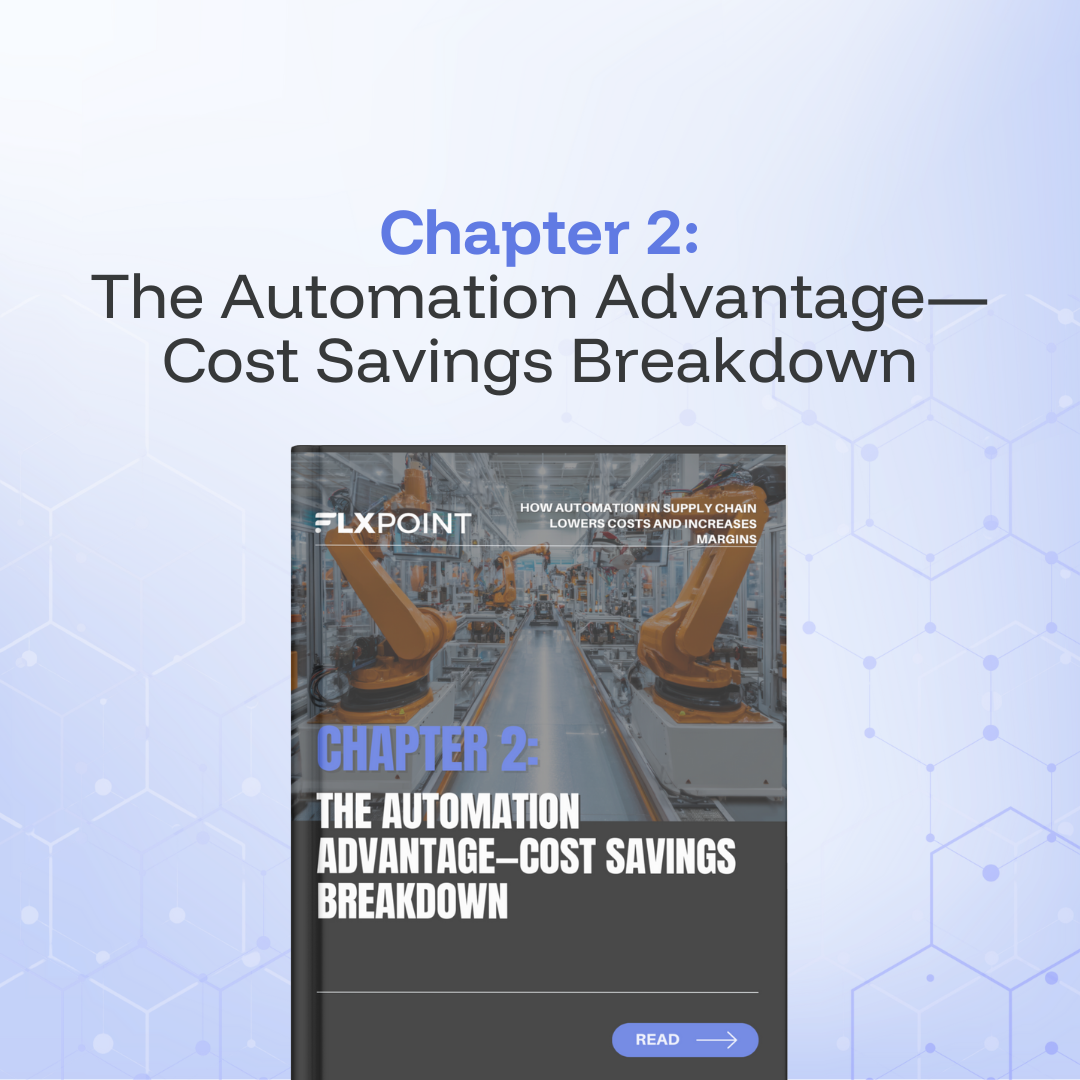
Automation reduces labor costs, prevents errors, accelerates cycles, and strengthens ROI. Compared to manual workflows, savings are measurable and margin-enhancing.
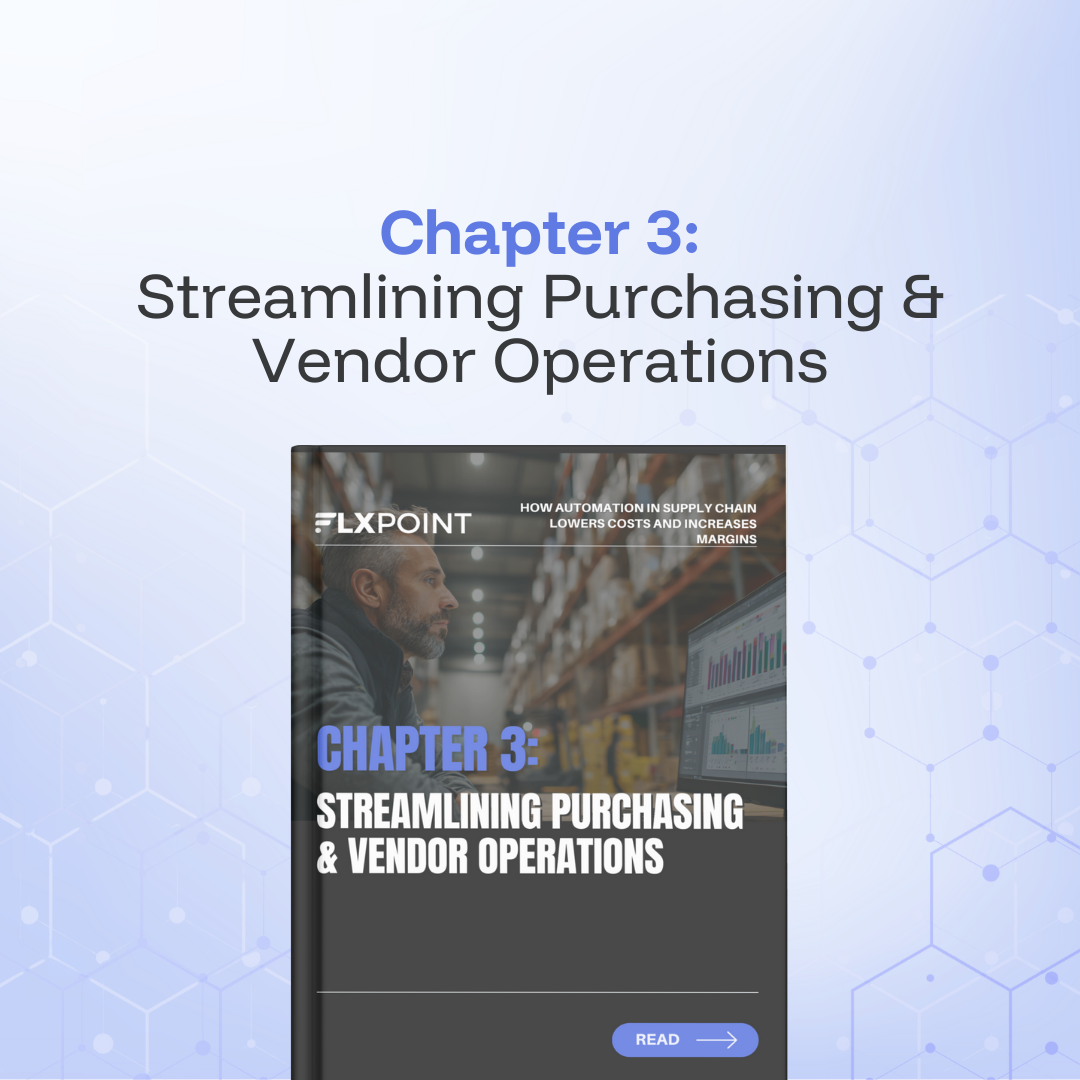
Automated procurement accelerates POs, improves compliance, and enables dynamic vendor management. Strong supplier alignment ensures profitability and scalability.
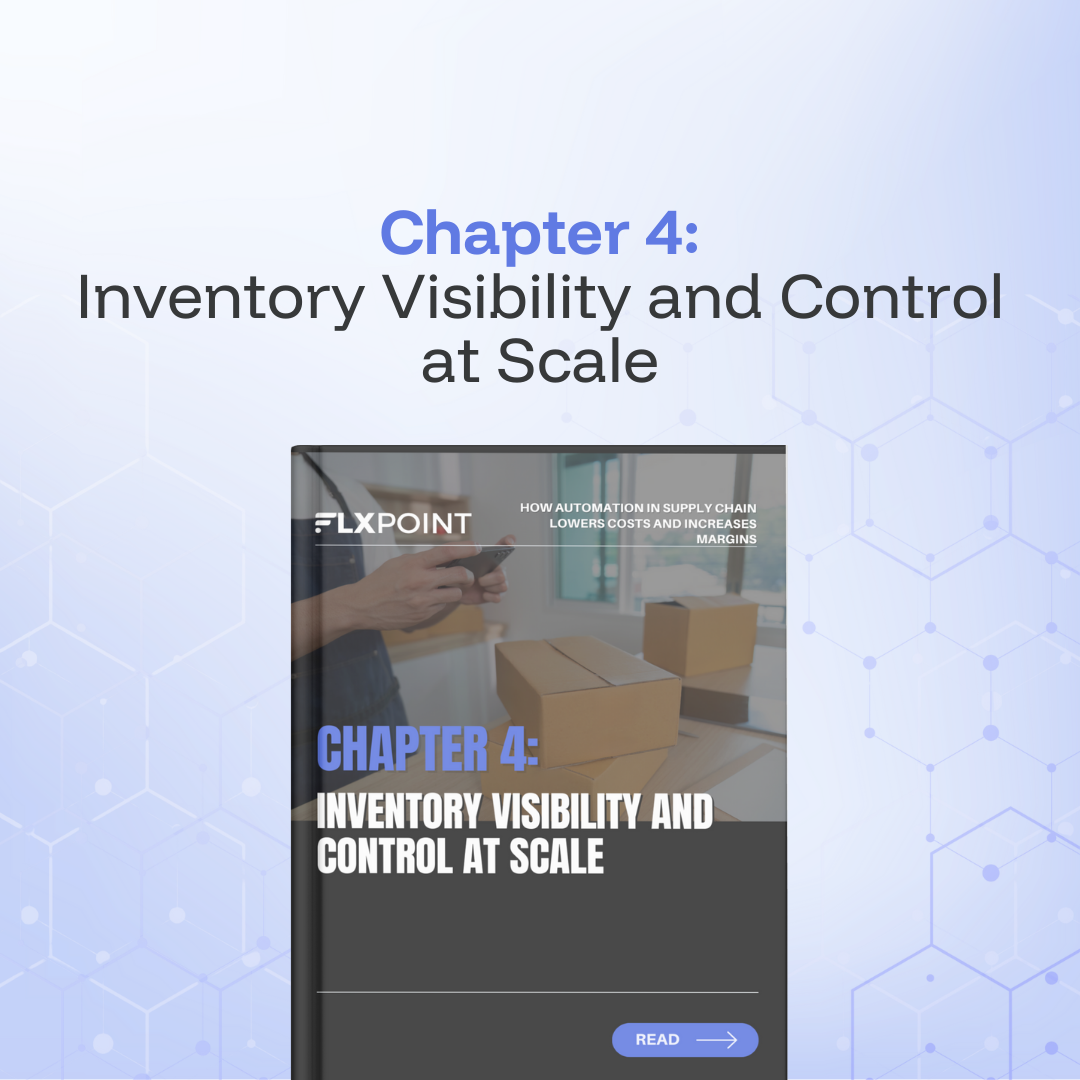
Real-time inventory logic supports multi-channel accuracy, demand forecasting, and replenishment. Automation reduces overselling risks and strengthens operational reliability.
.png)
Automated audit trails, exception handling, and documentation safeguard compliance, reduce risk, and improve accountability across the supply chain.
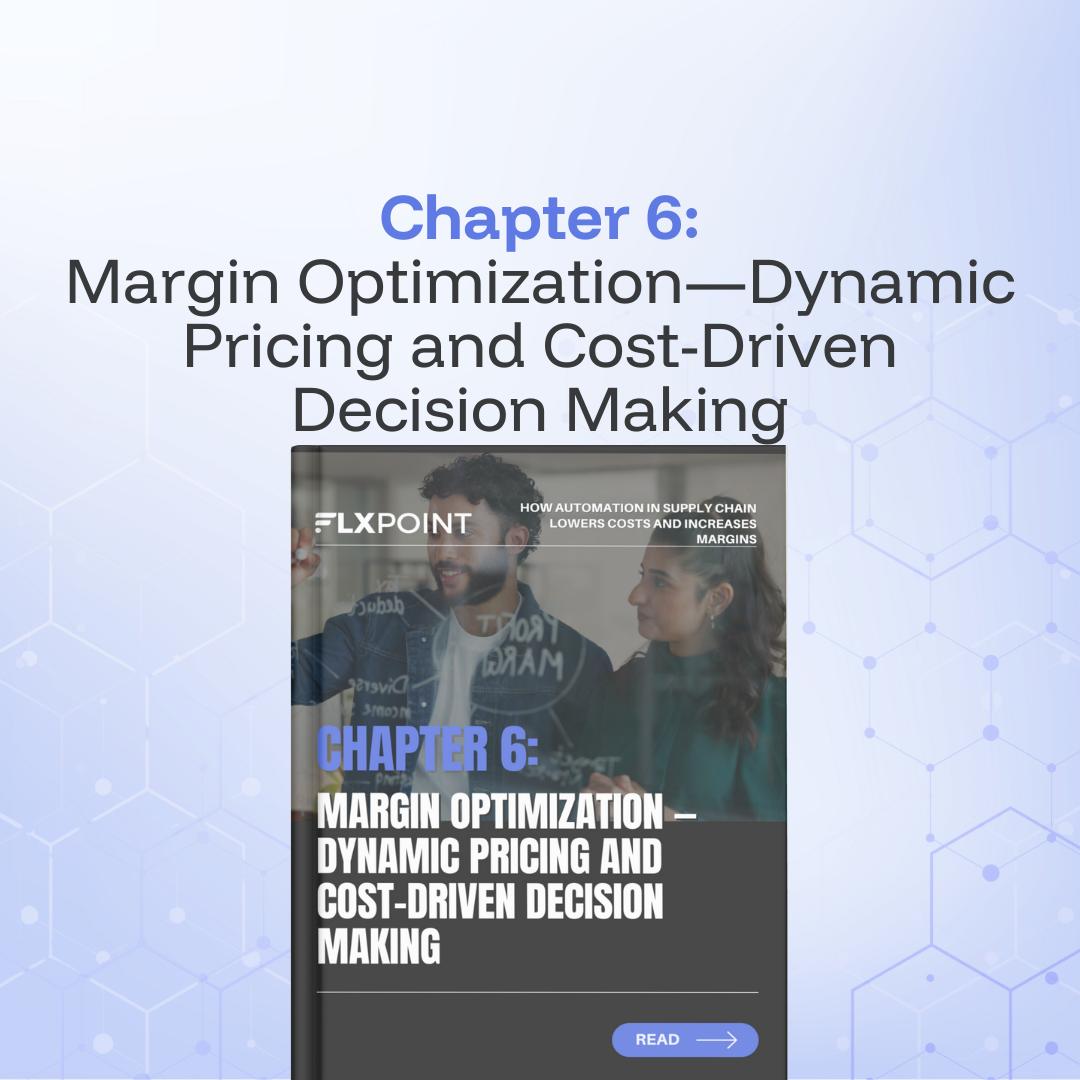
Automated pricing adapts to costs, demand, and competition. Smart allocation and tracking lower expenses while strengthening customer satisfaction.
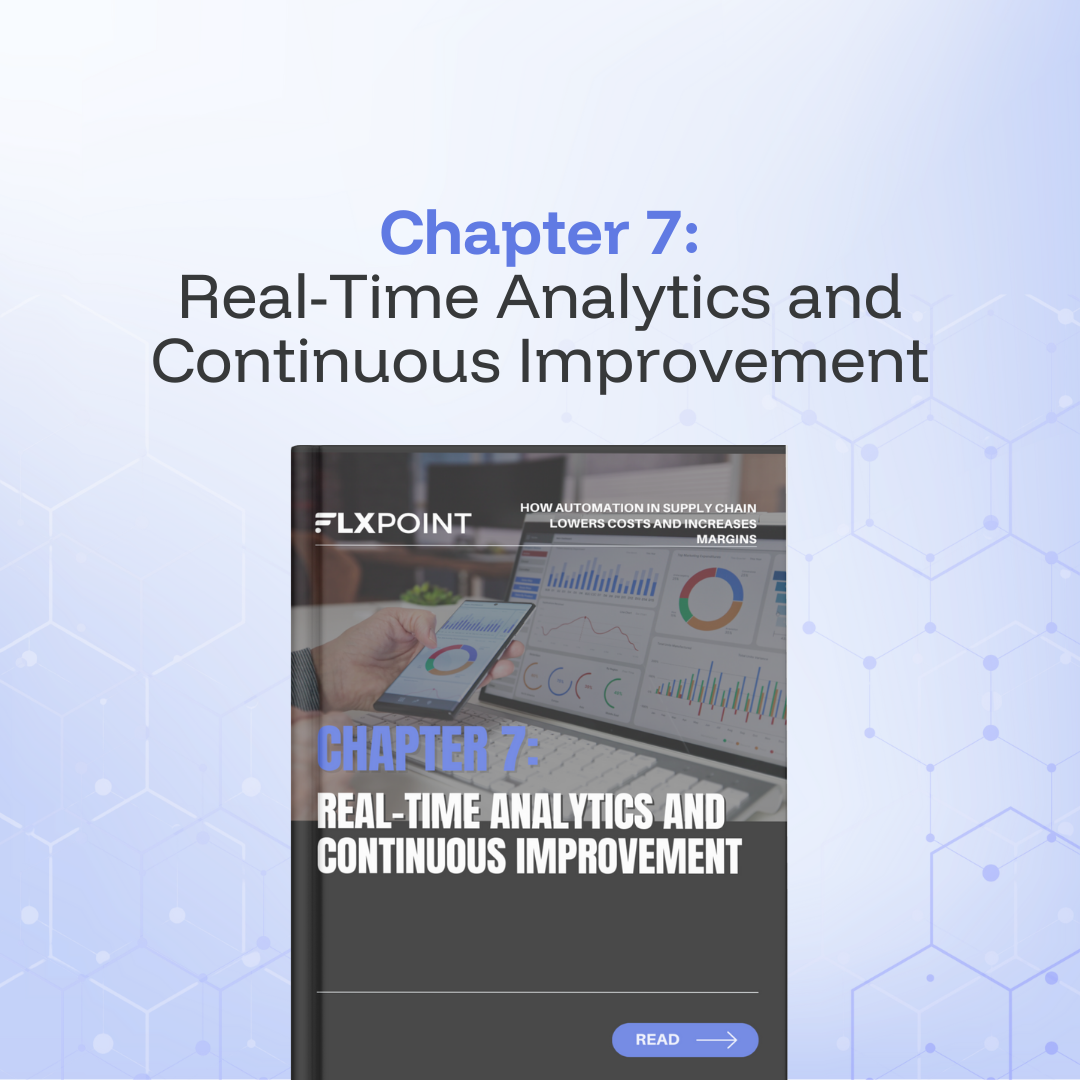
Analytics provide actionable insights through KPIs, dashboards, and continuous improvement cycles. Real-time visibility drives data-backed optimization.
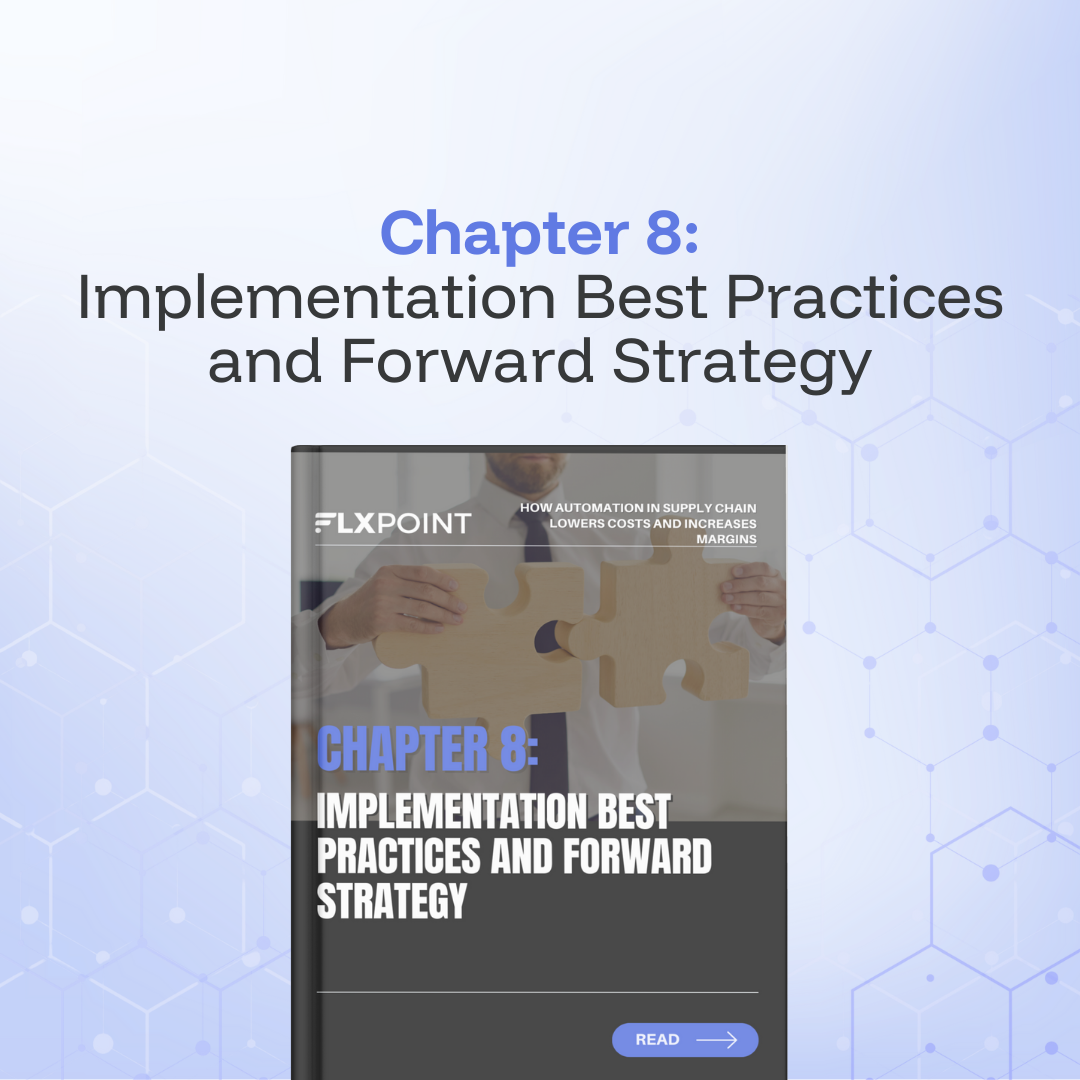
Successful automation adoption requires structured planning, cultural alignment, and adaptive strategy. Emerging trends like AI and low-code shape future-ready supply chains.
Kenneth Cole's Smart Savings With Shopify EDI Connections
"They had never used Flxpoint before. But working with [the Flxpoint] team, they learned it and we're about to onboard our newest footwear partner, and you know that's big business for us.”
Mitul PatelKenneth Cole


How Flxpoint Helped Rifle Supply Automate & Grow
“I went line by line… whatever the inventory number was and cost value was, I calculated it and was blown away by how much that was worth— $300 million worth of product that I added to our web store.”
Chris MekdaraRifle Supply


The Ecommerce Automation Behind Screen Skinz
"Automation is the key to maximizing your volume. [Flxpoint] comes right into our flow — everything's automated. We want it to be quick and efficient. So that's what we love about Flxpoint."
Shaun Brown & Clay CanningScreenSkinz


How Inhaven Transformed Vendor Management with Flxpoint
"We ended up switching to Flxpoint, and it has been a much smoother process. Where it took us six months to get onboarded with the other company, we were up and running in a week or two with Flxpoint."
Ashley ChingInhaven


How Black Patch Performance Scaled Smarter with Flxpoint
"The only way to actually scale was to go through Flxpoint… You can’t even come close to hiring someone to do what Flxpoint does for the price."
Jonathan WilliamsBlack Patch Performance


